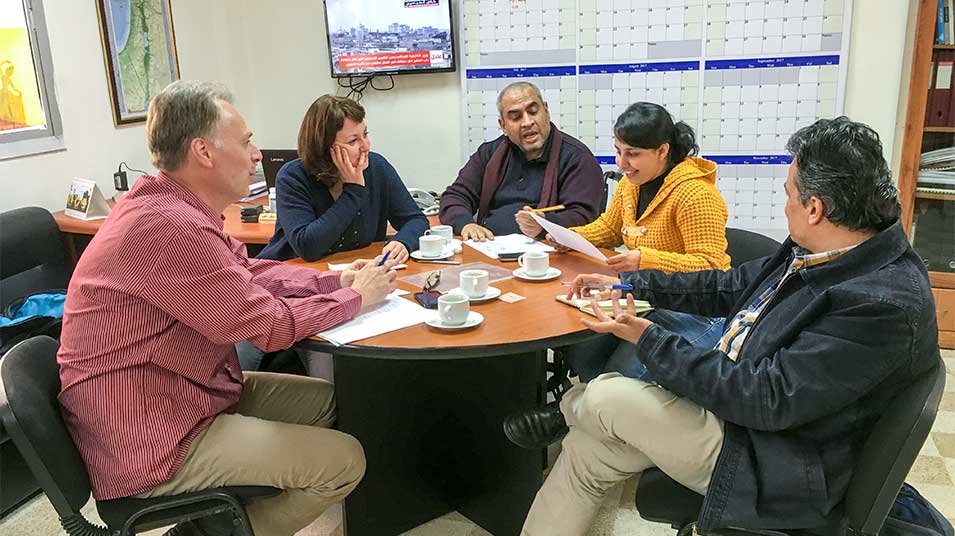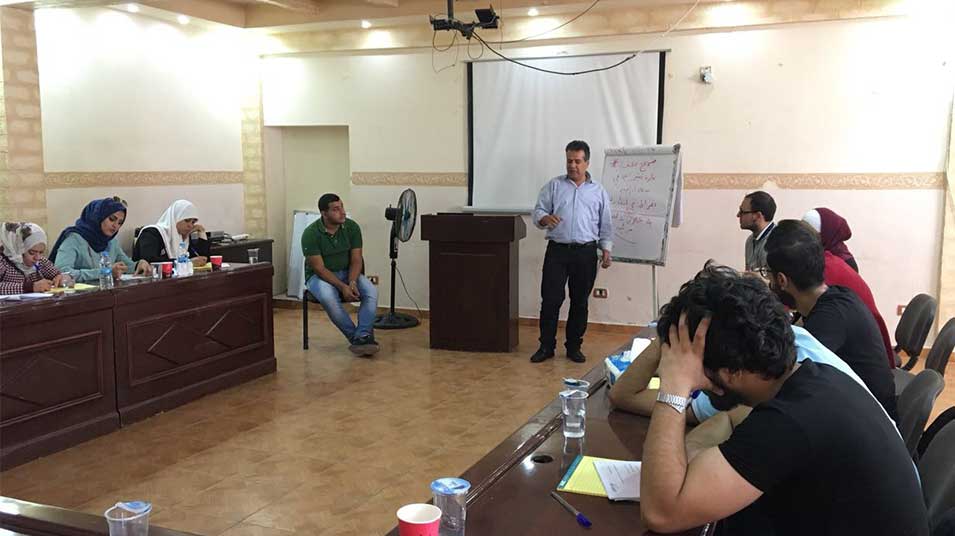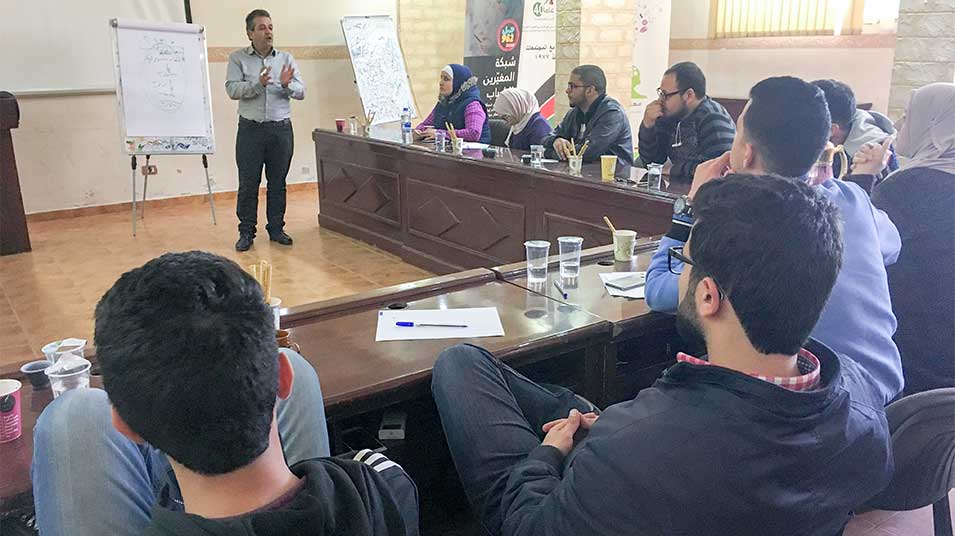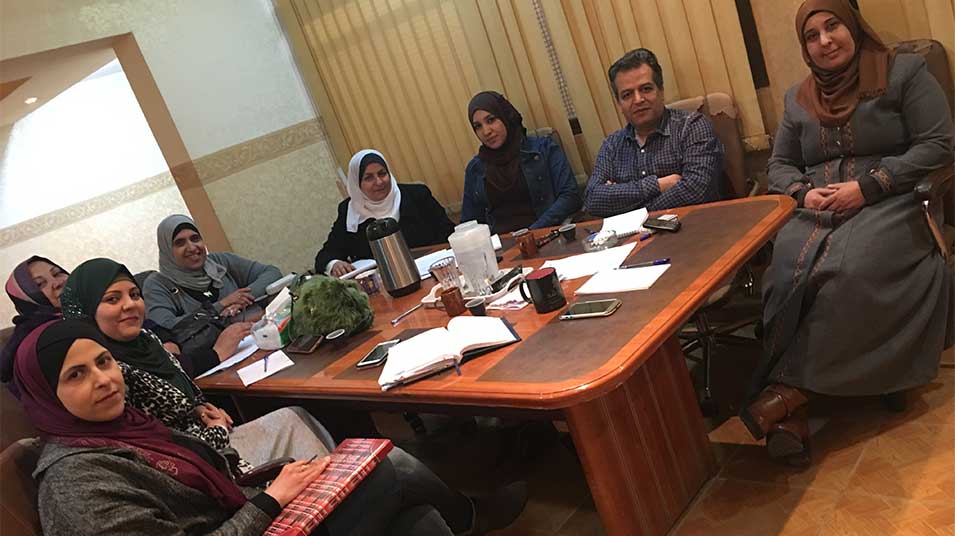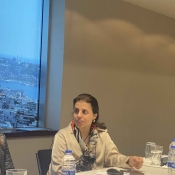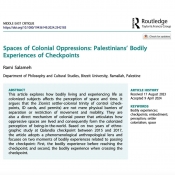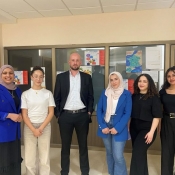Creating a generation of cognizant researchers and thinkers: The Rooting Development project
“Rooting development in the Palestinian context and expanding the framework to include the various components of the Palestinian community necessitates transferring the development dialogue from theoretical and critical rhetoric premises to a dialogue that is based on the authentic Palestinian development experience centered around the resistance – resilience binary,” said Coordinator of the Rooting Development in the Palestinian Context project Ayman Abdel Majeed.
The project, implemented by the Center for Development Studies at Birzeit University in cooperation with the University of Vienna, was launched in January 2017 and will last until January 2019. It is aimed at Palestinian youth in the West Bank, Gaza, and refugee camps in Lebanon and Jordan.
Most of the transformations that affected Palestinian structures since the Oslo Accords created fragile situations on all levels, said Abdel Majeed. “There are still some active marginal groups which still believe in making effort and the ability to achieve a breakthrough that can put Palestinian development on the right track.”
Such an endeavor, added Abdel Majeed, necessitates creating spaces for dialogue that can expand those groups and reinforce their actions and include all members of the community such as experts, academics, and development practitioners. Such initiatives result in practical outcomes that aim to reemphasize the different structures capable of affecting change in the state of dependency and subordination Palestinians often experience in the development context. These outcomes support a long-term vision that institutionalizes and frames the state of engagement with international development actors, which leads to a change in the status quo.
Project goals
The goals of the project originated from the common goals of partner organizations to present the vision in such a fashion that reflects and addresses the challenges and uniqueness of the Palestinian context. The project aims to develop a Palestinian development agenda, “Rooting Development;” train Palestinian field researchers in all Palestinian refugee camps in Jordan and Lebanon; establish an advanced training program for humanities postgraduates at Birzeit University and Al-Azhar University; and create a network of young researchers and field researchers in Occupied Palestine (the West Bank and Gaza) and in the Palestinian refugee camps in both Jordan and Lebanon.
The project emphasizes Palestinian refugee camps and attempts to investigate an alternative vision of refugee camp development, as well as the relationship between the refugee camp and the UNRWA, and the Palestinian National Authority and the overall political situation.
A youthful perspective
Maysoon Hasan, a trainee from Jordan, believes that Rooting Development distinguishes itself by “emphasizing methodology in research, logical thinking, control of knowledge sources in certain fields, and shying away from shallowness in thought and perspective.”
To Hiba Shehab, a trainee from Lebanon, the importance of the project lies in the fact that it “is aimed at the youth, which is the most important segment of any society and the source of a nation’s development and advancement.” The training, she added, had a great role in motivating community and volunteer work and presented the trainees with an opportunity to take a quantum leap from the theoretical to the practical - a jump through which the trainees were able to acquire knowledge, skills, and instruments. “The training incentivized us and jumpstarted our drive for community work.”
Mohannad Al Tarawni, a researcher and trainee from the Zarqa Camp in Jordan, said that the training helps him and the other trainees develop their research methodology and knowledge of research instruments. “The project raised our awareness of the Palestinian cause. We got to know the Palestinian refugee camps and the Palestinian refugees up close. We became cognizant to the events that they lived through and the memories that they developed as a result, and eventually, we faithfully told their stories in the form of a research project that describes the reality that they live and the challenges they face.”
“Now, we have a full research team in most Palestinian refugee camps in Jordan capable of conducting research projects with the requisite experience and practical and theoretical knowledge,” added Al Tarawni.
Abdel Majeed concluded by saying that framing the project as a sustainable inter-partner project emphasizes conducting analysis through a forward-thinking perspective by aiming to unravel and understand the intricacies of the Palestinian politico-economic situation and its effects on the social, intellectual, and cultural life within various components in Palestine and the diaspora.

